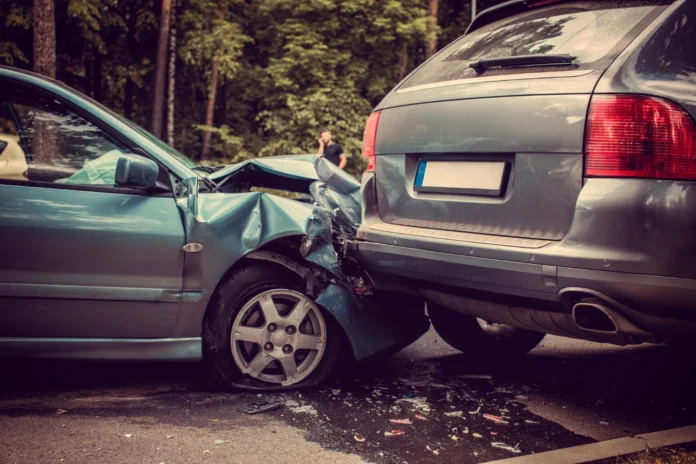Car accidents pose significant threats to safety on the road, often leading to injuries or even fatalities. Understanding these incidents’ underlying causes can help formulate effective preventive strategies. In line with the National Highway Traffic Safety Administration, numerous accidents occur due to human error, environmental factors, and mechanical failures. By identifying these elements, drivers can become more vigilant and take proactive measures to avoid potentially hazardous situations. Additionally, seeking legal guidance from a car accident lawyer in Myrtle Beach may provide a more straightforward path forward in addressing legal challenges and potential compensation for those affected by such accidents.
Table of Contents
Distracted Driving
The prevalence of distracted driving incidents has soared with the advent of mobile technology. It’s common for drivers in Myrtle Beach to engage with their phones—whether texting, scrolling through social media, or taking calls—while on the road, significantly increasing the risk of accidents. Studies reveal that taking your eyes off the road for a few seconds can have serious consequences. Beyond mobile phones, distractions include eating, talking with passengers, adjusting in-car settings, and daydreaming. Committing to staying focused while driving involves setting your phone to “do not disturb,” keeping necessary items within reach, and consciously training your mind to concentrate solely on driving responsibilities. Proactive measures can save lives and prevent accidents caused by lapses in attention.
Speeding and Reckless Driving
Speed limits in Myrtle Beach are established for compliance and intended to optimize safety based on road conditions and traffic density. Unfortunately, speeding continues to be a leading contributor to severe road accidents globally. When exceeding speed limits, drivers significantly decrease their response time to unforeseen obstacles, heightening the likelihood of catastrophic incidents. Coupled with speeding, reckless driving maneuvers such as tailgating, abrupt lane changes, and running red lights amplify dangers on the road. Embracing responsible driving involves adhering to speed regulations and maintaining patience and understanding for fellow drivers. Encouraging a culture of consideration on the streets can reduce hostile driving behaviors and keep travel safe.
Weather-Related Incidents
Weather conditions have a profound impact on driving safety. Rain, snow, ice, and fog can turn a seemingly safe road into a treacherous path. These conditions can impair visibility, decrease tire traction, and make braking more difficult. The National Weather Service emphasizes the importance of preparing for weather hazards, suggesting that awareness and preparation are key components of safe driving. During adverse weather in Myrtle Beach, drivers should increase following distances, reduce speeds, and use headlights appropriately. Studying weather forecasts before travel and preparing an emergency kit with essentials can also ensure readiness for sudden weather changes. Avoiding non-essential travel during severe weather alerts can be your safest decision.
Vehicle Malfunctions
Car maintenance is a pivotal aspect of road safety that sometimes gets overlooked. Mechanical failures, such as brake malfunctions, tire blowouts, and lighting issues, can lead to accidents if not addressed promptly. Regular vehicle check-ups and preventative maintenance ensure that every component of your vehicle operates efficiently. Allow professionals to inspect your brakes, check oil levels, and rotate tires during each service visit. Creating a manageable maintenance schedule aligned with each season’s end can assist in keeping your vehicle roadworthy and safe from unexpected breakdowns. A well-maintained car is your first defense against mechanical-related accidents, ensuring your safety and that of others.
Road Safety Tips
Enhancing road safety involves adopting simple yet effective habits. Consider implementing these tips for a safer driving experience:
- Stay alert: Keep your focus sharp and avoid distractions like texting or fiddling with car controls.
- Follow traffic laws: Adhere to speed limits and always stop at signals and stop signs.
- Regular vehicle maintenance: Ensure your car is always road-ready by keeping up with service schedules.
- Wear seat belts: Always fasten seat belts when the vehicle is in motion to enhance safety.
- Avoid driving under the influence: Drugs and alcohol impair reaction times and judgment—designate a sober driver if necessary.
- Plan your route: Before starting your journey, plan your route and have alternatives in case of unexpected detours.
Also Read : Custom Trade Show Exhibits That Wow: Standout Designs for Every Occasion
What to Do After an Accident
Experiencing a car accident can be overwhelming, but knowing the correct steps to take in its aftermath can ease the process. Initially, ensure that everyone involved is safe, and if necessary, contact emergency services immediately. Protect the scene by setting up flares or using your hazard lights. Exchange information with other parties, including names, insurance information, and vehicle details, is essential. Capture photographs of the scene and any visible damages, which may be vital for insurance and legal purposes. If possible, collect statements and contact details from witnesses. These steps are crucial in safeguarding your rights and facilitating a smooth post-accident resolution process, whether through insurance claims or potential legal ramifications.

